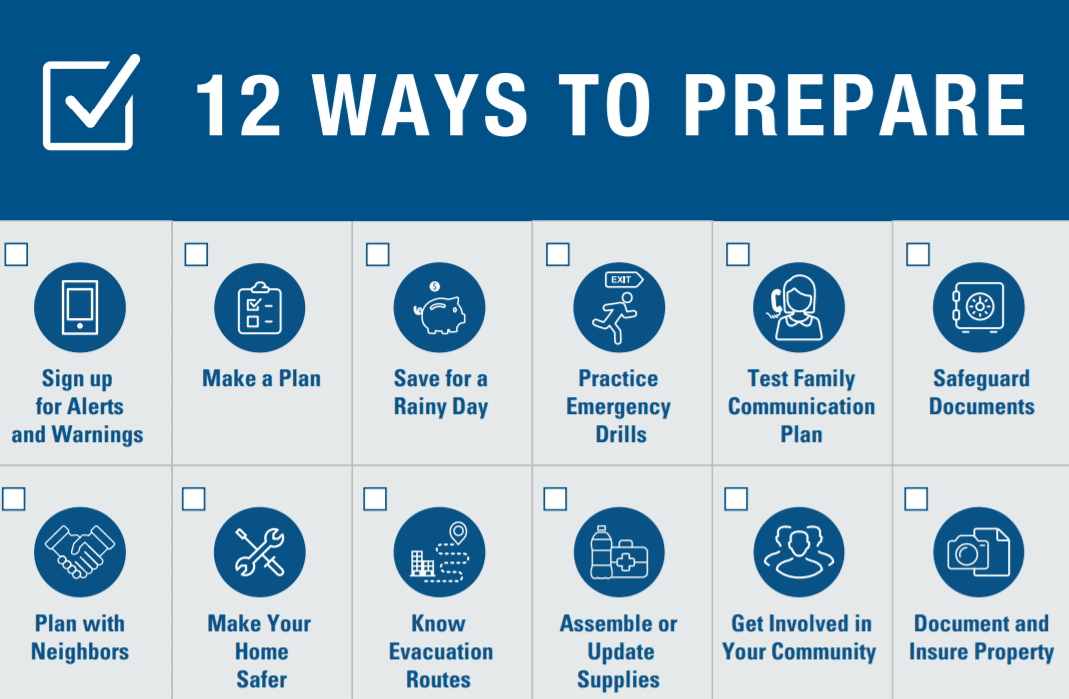September is National Preparedness Month. Day-to-day life can get pretty hectic, so National Preparedness Month acts as a set time to pause, prepare, and make sure you and your loved ones are protected. Given all the extreme weather we witnessed over the summer, now seems like a great time to look into preparedness!
What types of things should I be prepared for?
- Extreme weather (e.g., thunderstorms, tornadoes)
- Seasonal weather (e.g., extreme heat or winter storms)
- Fires
- Floods
- Power outages
- Pandemics
- Financial emergencies
- Cyber Attacks
Step 1: Create a plan
- Know your risks- what does it make sense to prepare for? (e.g., you probably don’t need to worry about hurricanes if you live in Michigan!)
- Familiarize yourself with your insurance policies and update if needed. What’s covered in the event of an emergency?
- Safeguard your documents. Click here for tips on safeguarding documents and other valuables from FEMA.
- Sign up for emergency alerts to stay informed
- Create a communication plan
- Collect a list of important phone numbers in case of an emergency (e.g., family members’ contact information, doctors’ offices, power companies, etc.).
- Make sure everyone has a copy of the list! You can create a printable list here.
- Make sure you have an emergency contact under “In Case of Emergency” or “ICE” in your phone.
- Consider your specific household needs
- If you’re a caregiver and your loved one lives alone, is there a neighbor that can check on them in an emergency?
- Do you know the emergency procedures of your loved one’s doctor’s office/senior center/etc.?
- Click here for information about planning if someone in your home has a disability.
- Click here for information about planning for emergencies with older adults.
- Click here for information about planning for emergencies with pets.
- Click here for car safety tips.
Step 2: Create a kit
- Basic supplies include:
- Prescription medications
- Food
- Water
- Flashlight
- Manual can opener
- Face masks
- Click here for a full list from ready.gov
- NOTE: Prior to COVID19, congregate meal/senior café participants were able to receive boxes of non-perishable emergency food. This program is currently on hiatus until further notice. Contact Marti Lachapell, Human Services Program Specialist, at (734) 544-2977or [email protected] for more information.
Step 3: Practice, Practice, Practice!
You could have the best, most intensive plan on the block, but it won’t do you much good if it’s only on paper. Take time a couple times a year to make sure your information is still up to date and meets you needs, and that you and your loved ones know what the plan is when an emergency occurs.

Stay safe out there!






